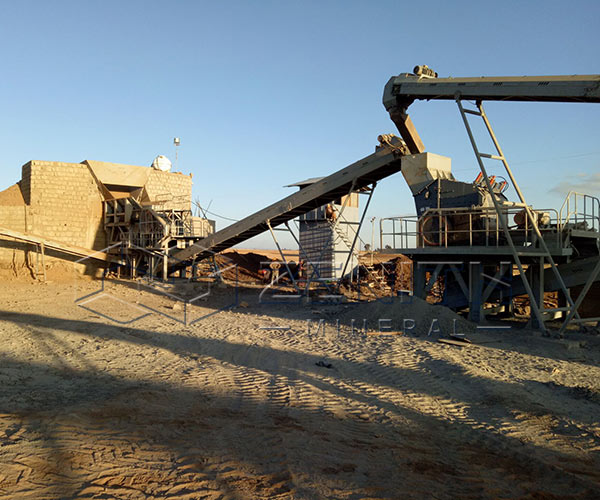Understanding the Ethiopian Stone Crusher Market and Its Growth Drivers
Ethiopia’s stone crushing industry is expanding rapidly due to strong demand from construction and infrastructure projects, fueled by government initiatives and urbanization.
The sector supplies essential aggregates for roads, bridges, housing, and commercial development, making stone crushers a crucial investment for contractors and mining operations.
The market features both local and imported machinery, with a variety of crusher types available to suit different project needs and budgets.
Main Types of Stone Crusher Machines Available in Ethiopia Today
- Jaw Crushers: Ideal for primary crushing of hard rocks such as granite and basalt; commonly used in mining and construction.
- Cone Crushers: Used for secondary or tertiary crushing, producing finer aggregates for concrete and asphalt.
- Impact Crushers: Best for softer to medium-hard materials, often used in road construction and recycling.
- Hammer Crushers: Suitable for small-scale operations and softer stones; valued for simplicity and lower cost.
- Mobile Crushers: Portable units that offer flexibility for on-site crushing, reducing transportation costs and setup time.
Typical Price Ranges for Stone Crusher Machines in Ethiopia
- Jaw Crusher (50–80 tph): Prices generally range from USD 150,000 to 250,000 for new units, reflecting the heavy-duty build and capacity needed for large projects.
- Cone Crusher (100–150 tph): Expect to pay between USD 280,000 and 380,000, with prices influenced by capacity, brand, and technology.
- Mobile Crushers: Smaller mobile jaw crushers and mini impact crushers can be found for as low as USD 1,500 to 90,000, depending on size, configuration, and country of origin.
- Entry-Level and Small-Scale Crushers: Some compact or mini stone crushers, including portable diesel-powered models, are available in the USD 1,200 to 20,000 range, suitable for startups or small contractors.
- Specialized Crushers (e.g., Hammer, Roller): Prices for specific machines like hammer or double roller crushers start as low as USD 260 and go up to USD 3,000, making them accessible for niche uses or small-scale operations.
Key Factors That Influence Stone Crusher Machine Prices in Ethiopia
- Capacity and Output: Higher-capacity machines command higher prices due to increased productivity and durability.
- Type and Technology: Advanced crushers with automation, mobility, and energy efficiency features tend to be more expensive.
- Brand and Origin: Imported crushers, especially from Asia, often incur higher costs due to shipping (15–20% of price) and complex logistics.
- Local Taxes and Duties: Import duties, VAT, and local taxes can significantly impact the final price, sometimes adding 10–30% to the base cost.
- After-Sales Support and Spare Parts: Machines from brands with local service and parts availability may have slightly higher upfront costs but offer better long-term value.
- Market Fluctuations: Exchange rates, steel prices, and global demand can cause price shifts year to year.
Comparing Prices: Ethiopia Versus Other Key Markets in Africa and Asia
| Country |
Jaw Crusher (50–100 tph) |
Cone Crusher (100–150 tph) |
Mobile Crusher (80–120 tph) |
Import Duties/Taxes |
| Ethiopia |
$150,000–250,000 |
$280,000–380,000 |
$1,500–90,000+ |
15–20% shipping, VAT |
| Kenya |
$5,000–60,000+ |
$20,000–50,000+ |
$80,000–110,000 |
25–30% duties |
| India |
$85,000–130,000 |
$120,000–170,000 |
$15,000–100,000 |
Lower, local supply |
| South Africa |
$370,000–530,000 |
$500,000–700,000 |
$370,000–530,000 |
10–15% duties |
Ethiopia’s prices are generally higher than in India but competitive with other African markets, especially after factoring in shipping and import costs.
Practical Tips for Buyers: How to Choose the Right Stone Crusher Machine
- Assess Your Project Needs: Define required capacity, material type, and desired output size before shopping for a crusher.
- Compare Local and Imported Options: Consider total cost of ownership, including shipping, taxes, and after-sales support.
- Check for After-Sales Service: Prioritize suppliers with local service centers or reliable parts availability to minimize downtime.
- Evaluate Energy and Maintenance Costs: Factor in power consumption and routine maintenance to estimate long-term expenses.
- Request Multiple Quotes: Solicit quotes from several suppliers to ensure competitive pricing and favorable payment terms.
- Consider Financing and Leasing: Explore local financing options if upfront capital is a constraint, especially for large-scale equipment.
What to Expect When Budgeting for a Stone Crusher in Ethiopia
Buyers in Ethiopia should expect a wide price range, from under USD 2,000 for entry-level or specialized machines to over USD 300,000 for high-capacity, advanced crushers.
Shipping, import duties, and local taxes can add significantly to the base price, so it’s essential to budget for these extras.
With the country’s ongoing infrastructure boom, investing in a quality stone crusher machine can yield strong returns, provided buyers choose the right model for their needs and secure reliable after-sales support.

